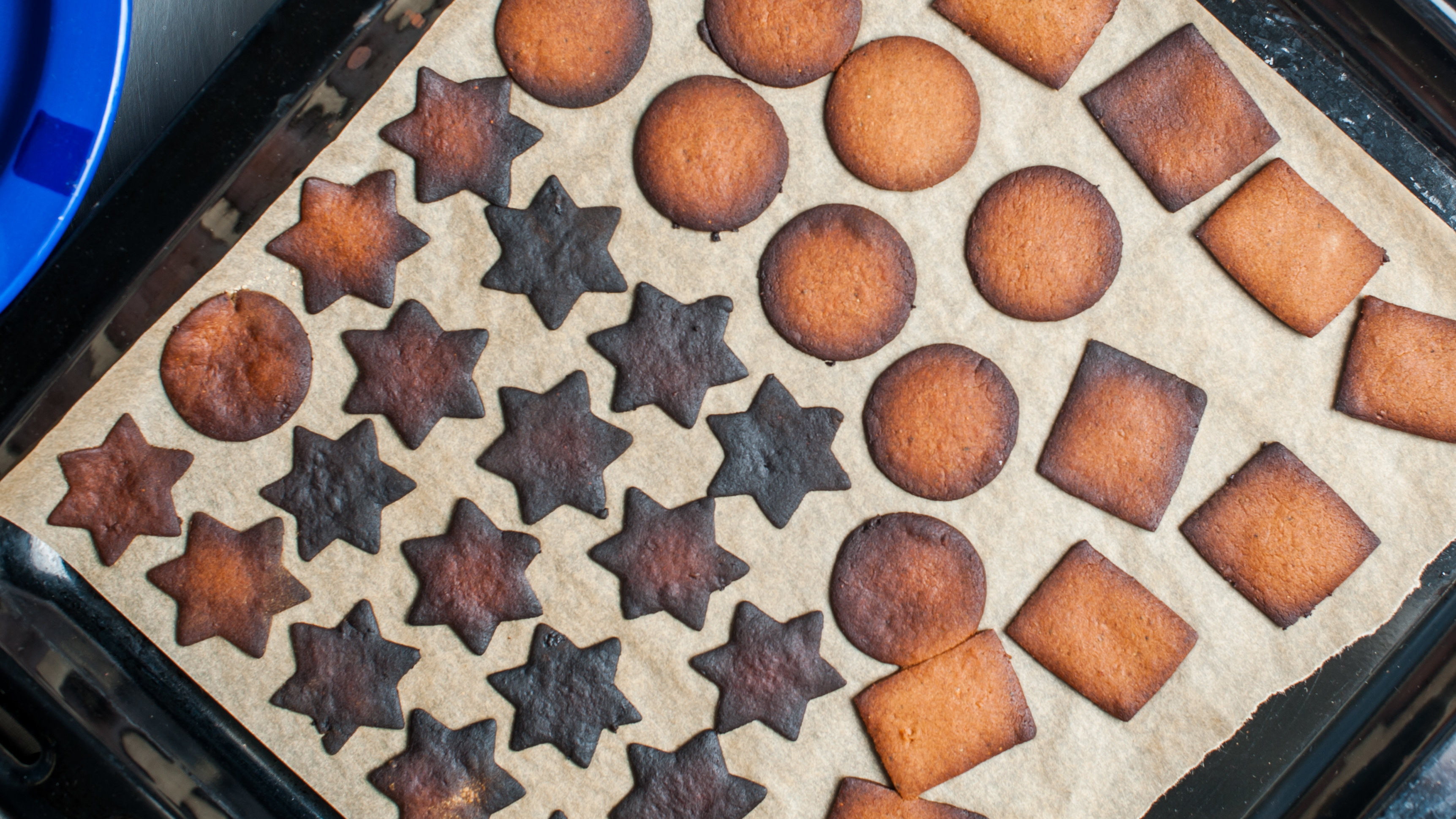Here's The Twitter Explosion You Missed Last Night When You Were Hiding From The Internet
The internet in the age of social media has taught us one lesson above all others: think twice before you post. There are a thousand unfortunate examples of people who failed to think about how their tweets could be misread, alternatively interpreted, or roundly criticized (remember Bean Dad?), and then spent untold amounts of time and energy doing damage control. This weekend, Twitter's focus turned to the developer of a new site called Recipeasly, which promised to provide users "your favorite recipes without the ads or life stories." The backlash came swiftly.
Some personal news! ✨
Two friends and I created a new thing to fix online recipes 😄https://t.co/3ZNkSV82Y5 – your favourite recipes except without the ads or life stories 🍩
Feedback and RTs appreciated! 🙏 pic.twitter.com/WerUH34AGG
— Tom Redman (@redman) February 28, 2021
"Some personal news!" begins a tweet by Tom Redman, a web developer in Guelph, Ontario. "Two friends and I created a new thing to fix online recipes. Recipeasly.com – your favourite recipes except without the ads or life stories. Feedback and RTs appreciated!"
Some context: complaining about the long headnotes within online recipes (particularly on cooking and baking blogs) is an old joke, and it's true that people looking for, say, a chocolate chip cookie recipe might have to scroll past a cool 1,500 words to get to the actual instructions. But it's not because the cooks and bakers are overly chatty people in need of an editor. There are all sorts of reasons to include long headnotes to recipes, many of which are outlined in this 2019 article from Food52.
SEO (search engine optimization) is one big reason to have a lot of recipe text. These introductory paragraphs include key words and phrases to signal to search engines that the content is highly relevant to what the user is looking for. A recipe's "narrative" also indicates that a lot of work went into the development of a particular recipe, meaning that it's not just part of some craven, automated, get-in-get-out content factory. A real human made this dish, and you can trust them. Brand-building is another crucial consideration: When you choose a Smitten Kitchen recipe, for example, it's because creator Deb Perelman has earned your trust with a proven track record of functional dishes—but it's also because you enjoy Deb's unique voice and her friendly-but-never-patronizing encouragement as you work your way through her catalog. (We very much hope to provide you the same blend of entertainment and utility with our recipes here on The Takeout.) When so much of a cooking blog's earning potential and continued existence is dependent upon its voice, is a little extra scrolling really that much to ask of readers?
So, all these considerations were already swirling in the ether, creating tension between headnote-haters and headnote-defenders, when Recipeasly was unveiled yesterday afternoon. And over the course of the next few hours, Twitter users found other reasons to dispute the existence of a site that stripped recipes of their backstory and, consequently, their character. Some people pointed out that most recipe bloggers are women and people of color, so to remove the headnote is to remove the important context of who brought this dish into the world. Others said that headnotes allow for more ad impressions and thus a bit more revenue for recipe bloggers, a fair price to pay for free content. Some questioned the legality of sharing the recipes this way. And the Twitter ratio grew and grew.
Within three hours, Redman replied to the original tweet in a series of follow-ups, threaded into one quote below:
So... this has struck a chord. To the content creators, I'm sorry. Your recipe websites and blogs are amazing.
We have nothing but respect and admiration for the time, money, effort and years that going into creating great recipes & websites. We don't want to minimize your results for that hard work and we've built Recipeasly carefully to make sure this doesn't happen.
Clearly, how we're marketing Recipeasly doesn't demonstrate that respect at all. We missed the mark big time and I'm sorry.
It's worth clarifying, imported recipes are only visible to the user who imported them – similar to if a user had printed the recipe or copied it into a doc. We're putting great care into make sure Recipeasly can't be used to take away from the great work bloggers & creators do
I'm also grateful for the strong feedback. There's a lot for us to learn, and I appreciate learning from the conversations in this thread.
I'd like to clarify that we do not make any money off of this. There is *no* revenue, much less profit. (Also, to drive blog traffic all recipe links on the homepage go out to the original recipe.)
I'm sorry, we hear you. Given the feedback, we are taking http://recipeasly.com down as we re-examine our impact on the community. Our goal is to amplify the voices & content of creators, not diminish them. And if we come back, it'll be with changes where we have fallen short
An apology along the same lines of the tweet thread above can now be found at the Recipeasly site.
Unlike other notorious Twitter backlashes, it does not appear that the creators of Recipeasly dug themselves into an unnecessarily deeper hole by doubling down on the idea that headnotes are annoying, nor did they make the common mistake of defending their maligned concept by saying, "Well, jeez, if you don't like it, don't use it!" Instead, the swift apology and shuttering of the website will probably allow the whole debacle to fade quicker from Twitter's collective consciousness. Best case scenario, we all walk away from an implosion like this with a better understanding of how recipes reach our eyeballs, because it's a process not to be taken for granted.
